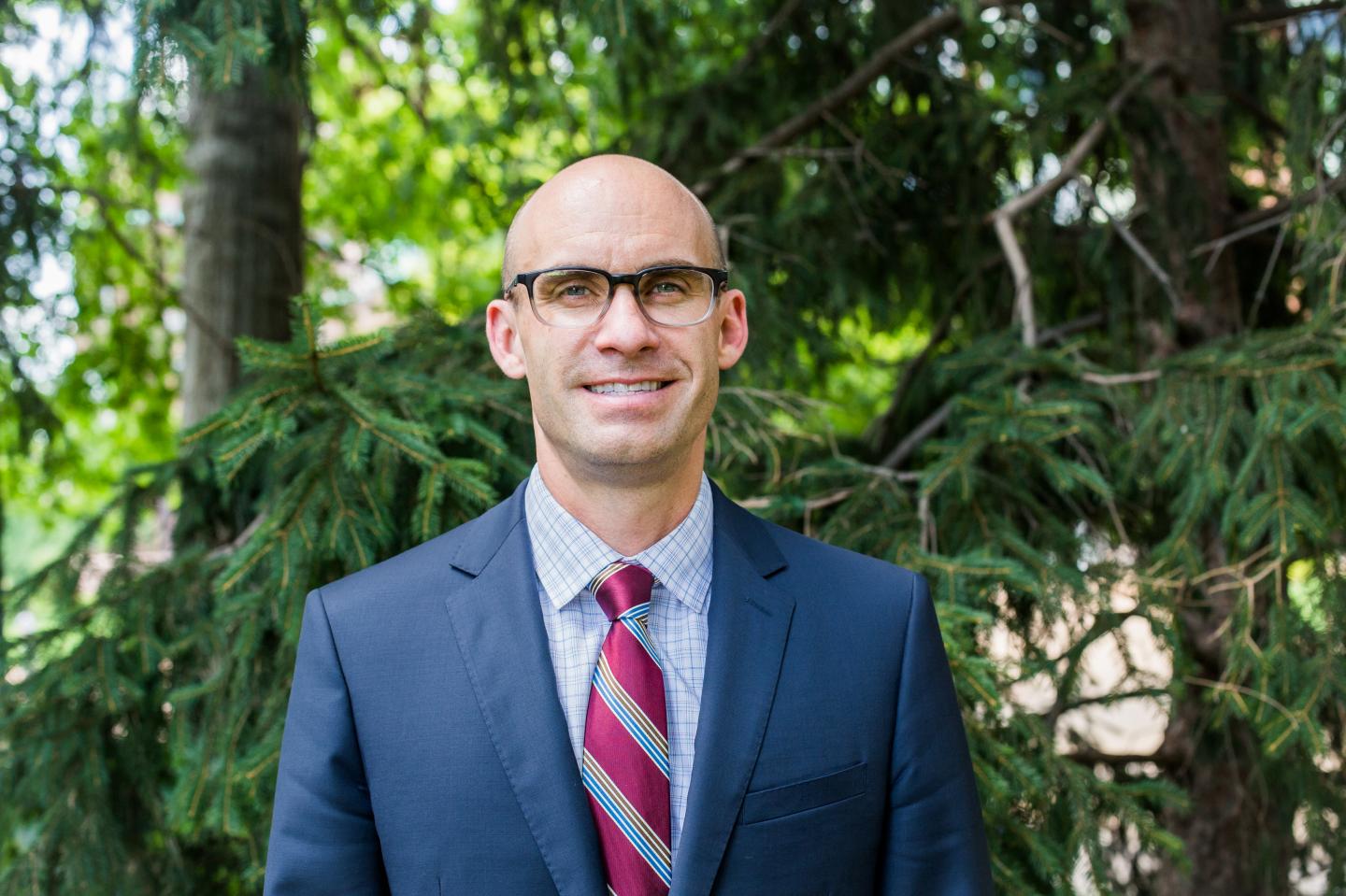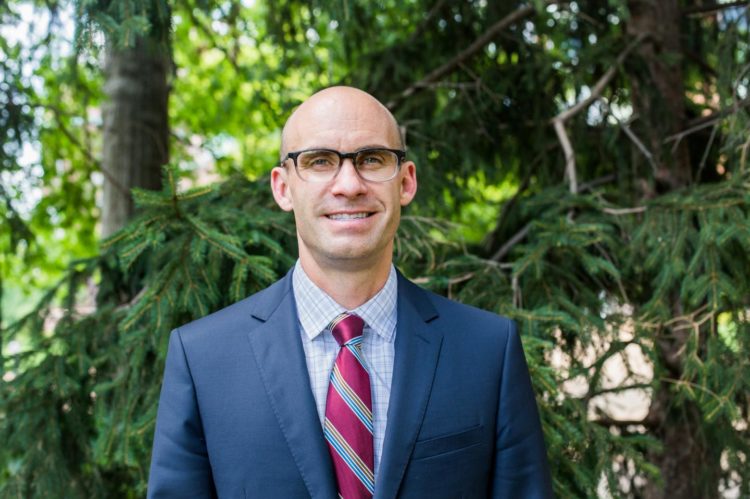Saint Louis University research finds higher death tolls, more hospitalizations in small town USA

Credit: Saint Louis University
Residents of rural areas are more likely to be hospitalized and to die than those who live in cities primarily because they lack access to specialists, recent research found.
The study, led by Kenton Johnston, Ph.D., assistant professor of health management and policy at Saint Louis University College for Public Health and Social Justice, looked at data from Medicare patients who have chronic health problems. The paper was published in the December 2019 issue of Health Affairs.
“People on Medicare with chronic conditions such as heart failure or diabetes who live in rural areas have higher death and hospitalization rates than their urban peers,” Johnston said.
“The biggest reason for this appears to be that people in rural areas have less access to specialist physicians like cardiologists and endocrinologists.”
Johnston and his coauthors, Hefei Wen, Ph.D., assistant professor in the division of health policy and insurance research at Harvard Medical School and the Harvard Pilgrim Health Care Institute, and Karen E. Joynt Maddox, M.D., assistant professor of cardiology at Washington University School of Medicine in St. Louis, urge policy makers to target innovations to bring more specialist care to rural areas.
Some of the strategies they suggest are:
- Expanding telemedicine in key areas, such as cardiology, to provide routine specialty care visits through technologies such as video conferencing
- Adding incentives for physicians to practice in rural areas such as loan forgiveness
- Considering differential payment rates that offer specialists who practice in rural areas more money
- Incentivizing rural and urban hospitals partnerships
- Bringing urban specialists into rural health systems on certain days of the week
Researchers examined 2006-2013 data from Medicare claims of patients in rural and urban areas who have heart disease, diabetes and other complex chronic conditions.
They linked the claims to health care supply data from hospitals that was provided by the Dartmouth Institute for Health Policy and Clinical Practice and determined rural-urban classifications using a Health Resources and Services Administration database.
The researchers defined a rural area as any town with fewer than 10,000 people, and found that 10% of Medicare beneficiaries lived in such areas.
Patients who saw a specialist at least once in addition to a primary care provider compared to those who saw only a primary care provider were 15.9% less likely to be hospitalized for a preventable cause and 16.6% less likely to die.
Preventable hospitalizations were highest in rural areas and lowest in metropolitan areas. Residents of rural areas had 40% higher rates of preventable hospitalizations and 23% higher mortality rates than their metropolitan counterparts.
Their findings have implications for all Medicare patients with chronic conditions, Johnston said.
“Our research shows that all Medicare beneficiaries with chronic conditions–urban and rural–have lower death and hospitalization rates when they visit a specialist at least once annually,” Johnston said. “Primary care is important, but it is not enough by itself; specialist care is needed as well.”
Johnston will participate in a Health Affairs Forum on rural health from 8 a.m. to noon (CST) on Wednesday. Dec. 4 to discuss his findings. The policy briefing will be held at the National Press Club. Those interested in watching the briefing in real time can attend in person or virtually by registering on Dec. 3 or 4 through this link.
###
The Saint Louis University College for Public Health and Social Justice is the only academic unit of its kind, studying social, environmental and physical influences that together determine the health and well-being of people and communities. It also is the only accredited school or college of public health among nearly 250 Catholic institutions of higher education in the United States.
Guided by a mission of social justice and focus on finding innovative and collaborative solutions for complex health problems, the College offers nationally recognized programs in public health, social work, health administration, applied behavior analysis, and criminology and criminal justice.
Media Contact
Nancy Solomon
[email protected]
314-977-8017
Original Source
https:/
Related Journal Article
http://dx.





